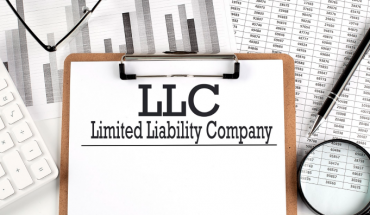Gibraltar Private Foundations legislation a significant addition
By Paul Astengo, Senior Executive, Gibraltar Finance and Adrian Pilcher, Partner, Isolas
In March, Albert Isola, Minister for Commerce, presented a Bill in the Gibraltar Parliament that would allow for the creation of Private Foundations in Gibraltar.
In 2012, the Gibraltar Society for Trust and Estate Practitioners proposed a number of legislative reforms to the Ministry of Financial Services in the area of trusts and family offices. Inter alia, these proposals included a recommendation for the introduction of foundations legislation providing for the establishment of private foundations in Gibraltar.
The introduction of foundations legislation provides additional choice and flexibility for the fiduciary sector of the financial services industry, and its clients, whilst allowing Gibraltar to continue to meet international obligations through high standards of transparency and compliance.
STEP
The Ministry resolved to introduce foundations and directed STEP to prepare the relevant legislation, with the help of the Government Law Offices and as part of an industry wide working group bringing together expertise from across the private and public sectors in Gibraltar.
Private Foundations have existed in Europe since at least 1926 and were introduced to provide a civil law equivalent to common law trusts. Since the 1990s, a number of common law jurisdictions introduced foundations legislation, for example Panama in 1991 and the Bahamas in 2004. The Foundations (Jersey) Law came into force in 2009, and likewise the Foundation (Guernsey) Law in 2012.
No single legal definition of a foundation exists however; it may be described as a legal entity created when a person provides assets for a specific purpose. The foundation holds the assets for purposes set out in its constitutive documents and administered according to contractual rather than fiduciary principles – principles that make them acceptable to people who are uneasy about using trusts. The foundation is a distinct legal entity but unlike a company, it has no shareholders.
Public register
Foundations are structures used in similar circumstances to traditional family trusts but are familiar to clients and intermediaries with a civil law background. As foundations, unlike trusts, are legal entities they will, in accordance with Gibraltar’s legal tradition, be entered onto a public register administered by the Gibraltar Registry.
Foundations generally have common features including legal personality and in many jurisdictions are visible on a public register. The Founder, who provides the initial assets of the foundation known as the endowment, forms them. The foundation holds assets for the purposes set out in its constitutive documents and administered according to contractual rather than fiduciary principles. Run by a council (or board) which is responsible for fulfilling its purpose it has no shareholders and, depending upon its purpose, may or not have beneficiaries. A requirement is that at least one councillor is a Gibraltar resident company licensed as a professional trustee in Gibraltar.
Beneficiaries have contractual rights to enforce the operation of the foundation in accordance with its constitutive document – rather than proprietary rights in its assets, or equitable rights such as are available to beneficiaries of trusts. A foundation may also have an advisor or protector if its rules so provide.
There is a demand for foundations domiciled in a well-regulated, co-operative and transparent jurisdiction.
Private foundations are flexible philanthropic vehicles, often created to fulfil the philanthropic goals of a family. They are not usually designed to carry out charitable work but they do instead support charities in carrying out that work.
Private foundations have become increasingly popular and in some cases have become highly visible as people of significant wealth carry out philanthropic work. In some very high profile cases the monetary value held by private foundations runs into the billions. The increase in popularity is also due to a greater awareness among advisors of the benefits of establishing private foundations for example.
At the outset, the main contributor will decide whether it is the intention to have control over activity the private foundation undertakes. This allows ongoing and flexible decisions on how the funds are to be invested and distributed.
It is usual for family members over several generations to have a hands on role in the activity undertaken providing invaluable experience and an early understanding of the value of good giving.
The Private Foundations Act 2017 commenced on 11th April 2017 and can be viewed here: www.gibraltarlaws.gov.gi/articles/2017-03o.pdf
This Act has created consequential amendments and these reflect in the following:
- Income Tax Act 2010 www.gibraltarlaws.gov.gi/articles/2010-21o.pdf
- Financial Services (Conduct of Fiduciary Services Business) Regulations 2006 www.gibraltarlaws.gov.gi/articles/2006s139.pdf
- Financial Services (Investment and Fiduciary Services) Act www.gibraltarlaws.gov.gi/articles/1989-47o.pdf
- Rates of Tax Rules 1989 www.gibraltarlaws.gov.gi/articles/1989s096.pdf





